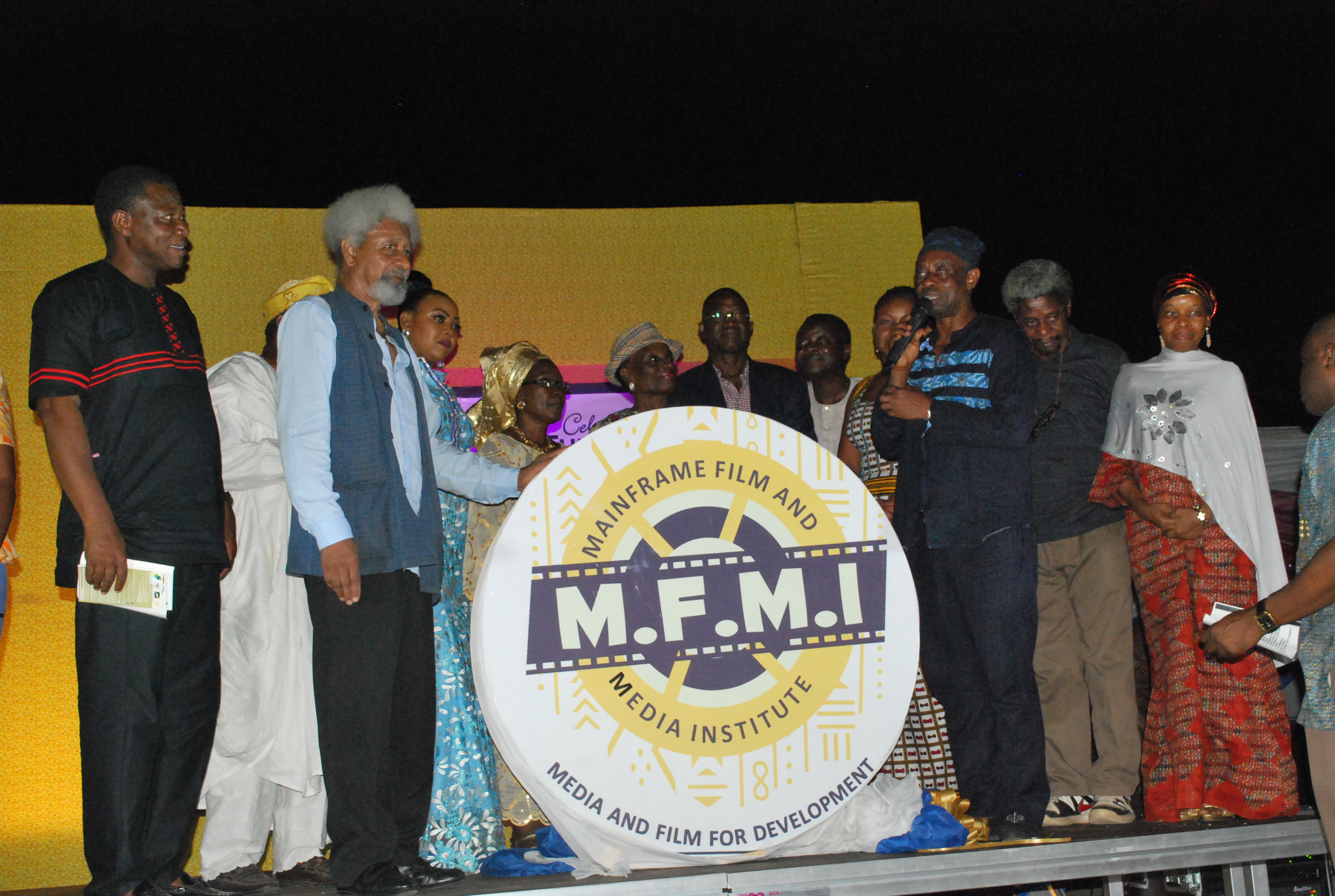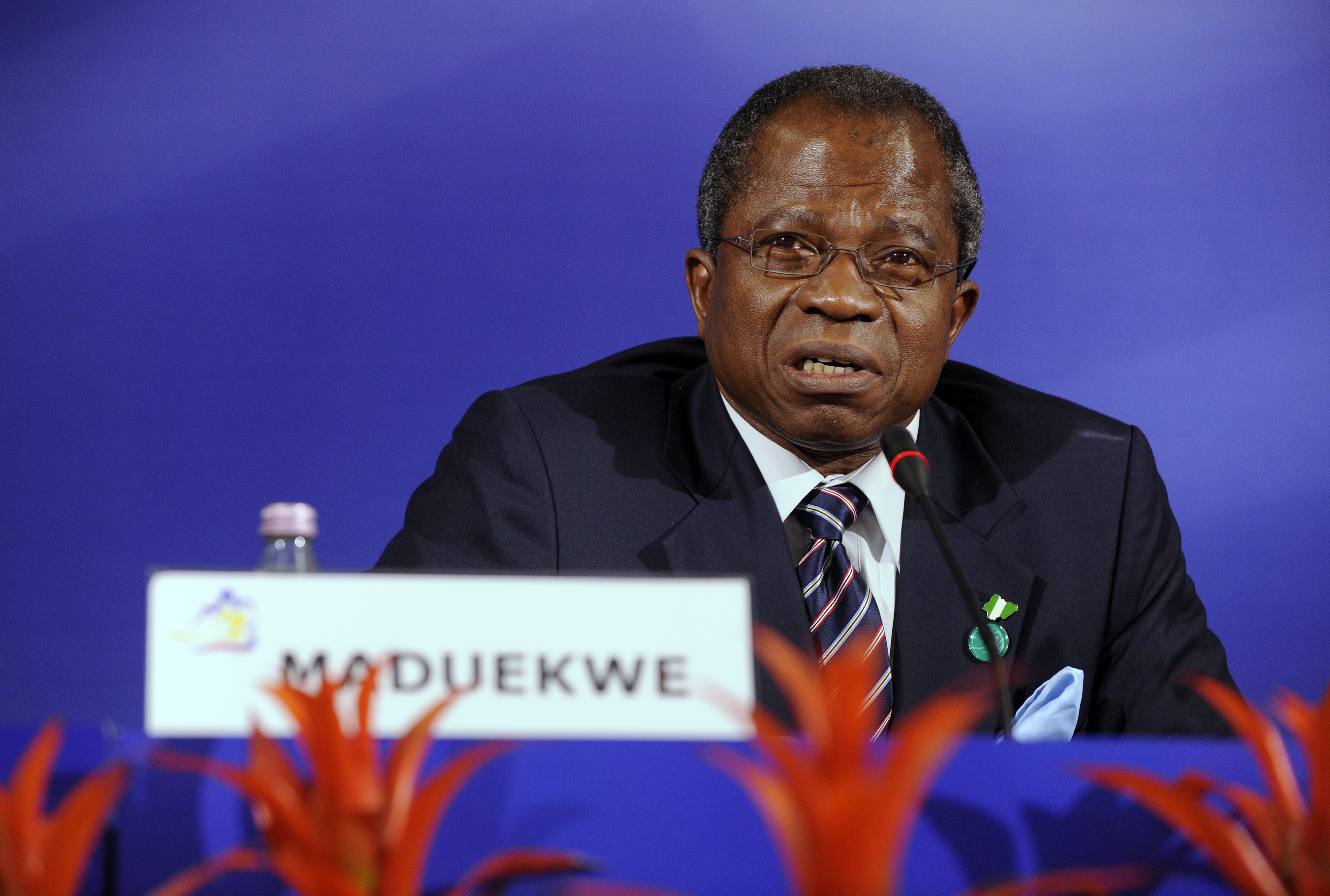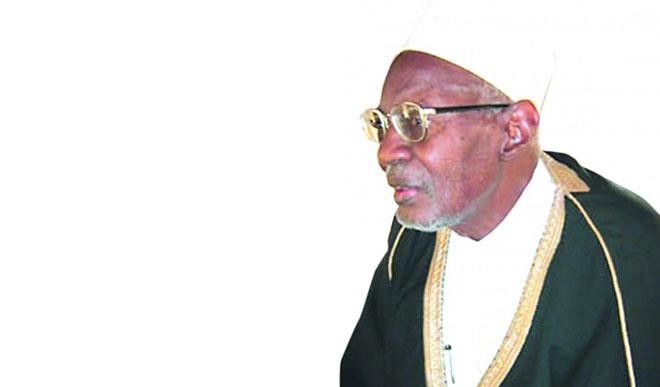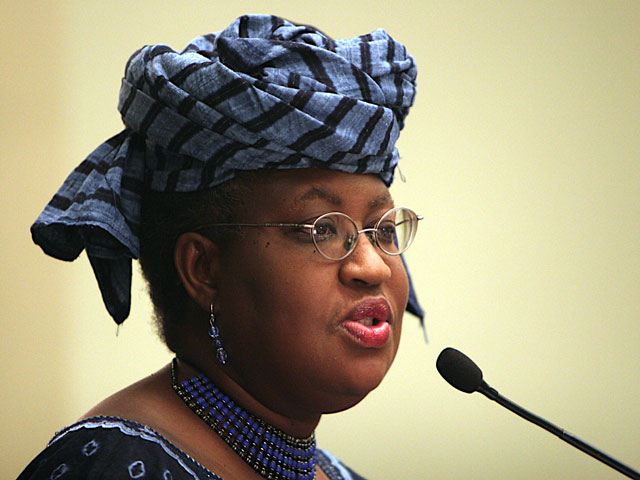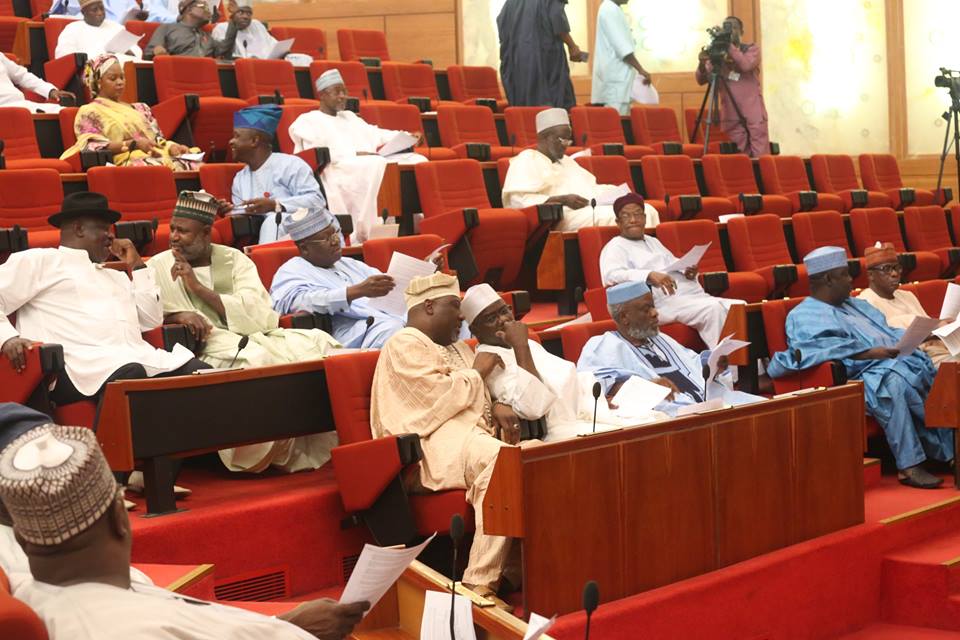BY FEMI ODUGBEMI
KEYNOTE ADDRESS BY FEMI ODUGBEMI AT THE 1st GRADUATION OF THE MAINFRAME FILM AND MEDIA INSTITUTE ABEOKUTA ON FRIDAY 8th JULY 2016.
Let me begin by congratulating my dear egbon Tunde Kelani on this historic and important day. I find it remarkable reading something online recently when TK was asked what he considered his greatest achievement and he responded by saying it was the establishment of the Mainframe Film and Media Institute. It tells you everything you need to know about this great legend of cinema that after all that he has achieved, his eyes are fully focused on building a legacy for the generation of filmmakers coming after him. So on behalf of all of us who have been inspired by your passion and your leadership, I salute you greatly for this vision and I thank you for the honour of your invitation to speak at this first graduation of the institute.
I am very excited by the opportunity to use this few minutes to speak first to the graduates of this institute and to also address what I consider the most urgent gap in our industry which I believe the MFMI was created to to address. I will do my best to do both quickly within the short time I have.
To our new graduates, please accept my congratulations for successfully completing your course. I know some of you registered because you love cinema and want to make a career of your talent. I also know almost all of you were encouraged to come here because Mainframe and Tunde Kelani are buzzwords in African Cinema for quality, innovation and culturally relevant hit films. At the kick-off of the MFMI many weeks ago, I remember writing somewhere that your greatest opportunity coming to MFMI was not going to be to learn how to operate a camera or sound kit. It is that you will be coming under the tutelage of a visual artiste whose passion and professionalism and character defines the power of his works. Learning how to use the tools and techniques of filmmakng is important, no doubt. What use to which the tools are deployed is of greater significance and defines your person, your purpose and your place as a filmmaker.
Advertisement
My best message to you today is simple: your passion will prosper you when you put a purpose to your passion. I like the simple analogy of a mechanical drill. You buy a drill cause you need to make a hole. The drill is a means to an end. What you want and the real point of buying the drill is to make a hole. Playing with the drill can be a lot of fun of course – it vibrates and makes a lot of noise when you turn it on. But unless you actually put it to a wall it is useless to operate one, isnt it? The violence of our reality in our film industry is that the content of our cinema is not addressing the challenges of our environment. Too many of our colleagues in the industry spend a lot of time playing with the drill. And in the end they arent making a hole. Filmmaking is a powerful drill. Use it to make a hole…Make films to make a point. Make films that matter.
Filmmaking is first and foremost an artistic endeavor. It is a thoughtful, disruptive endeavour that seeks to influence the minds of its audiences. Yes it is primarily entertaining but its real power is that it causes society to reflect on its history, its sociology, its ideology but much more its empathy and humanity. Filmmaking is not a trade, it is not some easy vocation for the dimwitted or something to do because you couldn’t pass JAMB. Filmmaking is serious business. It is a socially conscious re-interpretation of reality. It is birthed in a context, it is relatable to its environment, it bears the distinct sounds and sights of its origination. Films are cultural artifacts which reflects the cultures, and, in turn, affect them. So your work as filmmakers MUST be culturally relevant or it loses its point. So as you leave here, seek first and foremost to grow your historical consciousness and cultural intelligence and that will express itself in the important themes of your works and the core messages of your films.
That is the first legacy of the MFMI. Nobody here needs me to make a case for how important the legacy of Tunde Kelani is, not just to the film industry of Africa, but to the Renaissance movement of the African culture at large and the ancient Yoruba civilization in particular. I have constantly argued that history will remember TK not just as a pre-eminent African filmmaker which he is, but primarily as a deeply committed advocate of cultural renaissance. An artiste of formidable historical presence who understood early that the path to Africa’s progress must be through the prism of its unique cultural values and worldview. And That that path admits the commonsense utilization of technology as a platform to globally express that which was always our unique understanding and historical ways of life as Africans.
Advertisement
If you got nothing else from your time at this institute, I pray and hope this important point stays with you regardless of whether you choose to be a director, a cameraman or a scriptwriter going forward.
The second thing of course that is a known legacy of TK that cannot be missing in your approach to your work is the understanding that digital Technology must be cultivated as an important ally in your storytelling. There is no greater challenge to the future success of African cinema that we must focus to address. Africa today is largely a consumer of technology and is yet to join the league of countries that are primary producers. So while African cinema is constantly evolving and trying to catch up with Western cinema, in terms of technology we continue to face important challenges. Creating certain genres of stories especially ones that explicate the mysteries of African mythologies, for instance, require existing technology to be customized for the filmmaker to successfully tell his story. Successfully broadening genres in African Cinema is inhibited by this. African filmmakers would find it challenging to create films in the science fiction and other genres that require heavy technological influence for a while but available tools that are affordable that you must explore consciously to push the frontiers of our storytelling.
For your information, TK is already talking about going to Okeigbo to immortalise the fantasy worlds created in Baba D.O.Fagunwa’s books with concepts of theme parks of Igbo Olodumare, Igbo Irunmole, and Igbo Elegbeje. We will need visual representations of these amazing characters of those tales. Technology is our only recourse in such an amazing proposal. So the opportunity for African Cinema’s future is how to leverage these technologies to deliver generation-next content that creates compelling consumer experiences and connects audiences across devices, networks, time zones and geography. We need to start distilling the trends that will fundamentally transform how content is created, distributed and consumed in the next 10 years!
Oyinbo people say apples don’t fall far from the tree, but I think we the yorubas say it’s better when we say “omo ekun, ekun lo ma jo.” That’s the sum of my advice to the graduands and what I suggest will be the expectation of the industry when you tell anyone you studied under TK at MFMI.
Advertisement
To our industry, this is an important moment to send an important message. And that message is that systemic Film education is critical to the sustainability of the industry. 25 years into Nollywood, our prevailing interest should not be to have people ‘interested’ in film, but people ‘educated’ in film. The ugly reality continues to be that we have more practitioners driven by interest rather than equipped with knowledge. It explains why the majority of our films still look like stage drama captured on video.
The analogy I make is this: Imagine if Nigerian architects took the Nollywood model and anybody that just wanted to build a house or felt that they could, simply just built a house. if the education that reveals the science behind the solidity of structure , the education necessary for you to be able to understand the impact of soil on your building, the education necessary for you to know what the mix of cement ought to be for you to have not only a building but a building that is usable, a building that is sustainable, a building that can stand the weather; if all of these are ignored or taken for granted as is the case with Nollywood, then, mortality rate of the nation can only best be imagined. The fundamental success of any industry will come from the quality of professional education that forms the foundation of that industry.
Professional education is not something we should think about as optional because we think we are already talented. Talent is important, but talent is not enough. We need to foster professional film education the right way. The focus right now has to be, first, creating the right curriculum; a uniform curriculum for film education that incorporates the global template for film education. It has to start from appreciating film as an artistic enterprise, not a commercial enterprise. As an artistic enterprise, film should be about the vision in the head of a director on the one hand and the training of a technically adept crew that can help the director to realize his vision on the other hand.
We need to begin to create filmmakers who understand the visual arts, filmmakers who understand the impact of colour and lighting, literature and poetry, sound and music, yes filmmakers with strong filmic storytelling intelligence.
Advertisement
We need to be able to create the right kind of curriculum in our film training But it has to be a curriculum that is standardized, adopted nationally with a focus on our cultural and development objectives as a film-friendly nation.
Our universities must assume leadership, not only in developing curriculum for film studies, but a functional template to systematize the Nollywood process of filmmaking in a way that other countries with similar sociology can replicate its model.
Advertisement
Let me end by saying that telling the African story is the obligation of Africans and every nation on the continent must deliberately choose how the rest of the World perceives its people, its identity and its civilization. Filmmaking is our most important cultural diplomatic tool providing us a viable platform to define who we are for the rest of the World, BUT it wont happen unless we make a conscious and deliberate intervention to empower our young talents with a systemic structure.
Thank you
Advertisement
Odugbemi, a filmmaker and the CEO of DVWorx Studios & Zuri24 Media, is co-founder/director of I-Rep Documentary Forum
Advertisement
Views expressed by contributors are strictly personal and not of TheCable.
